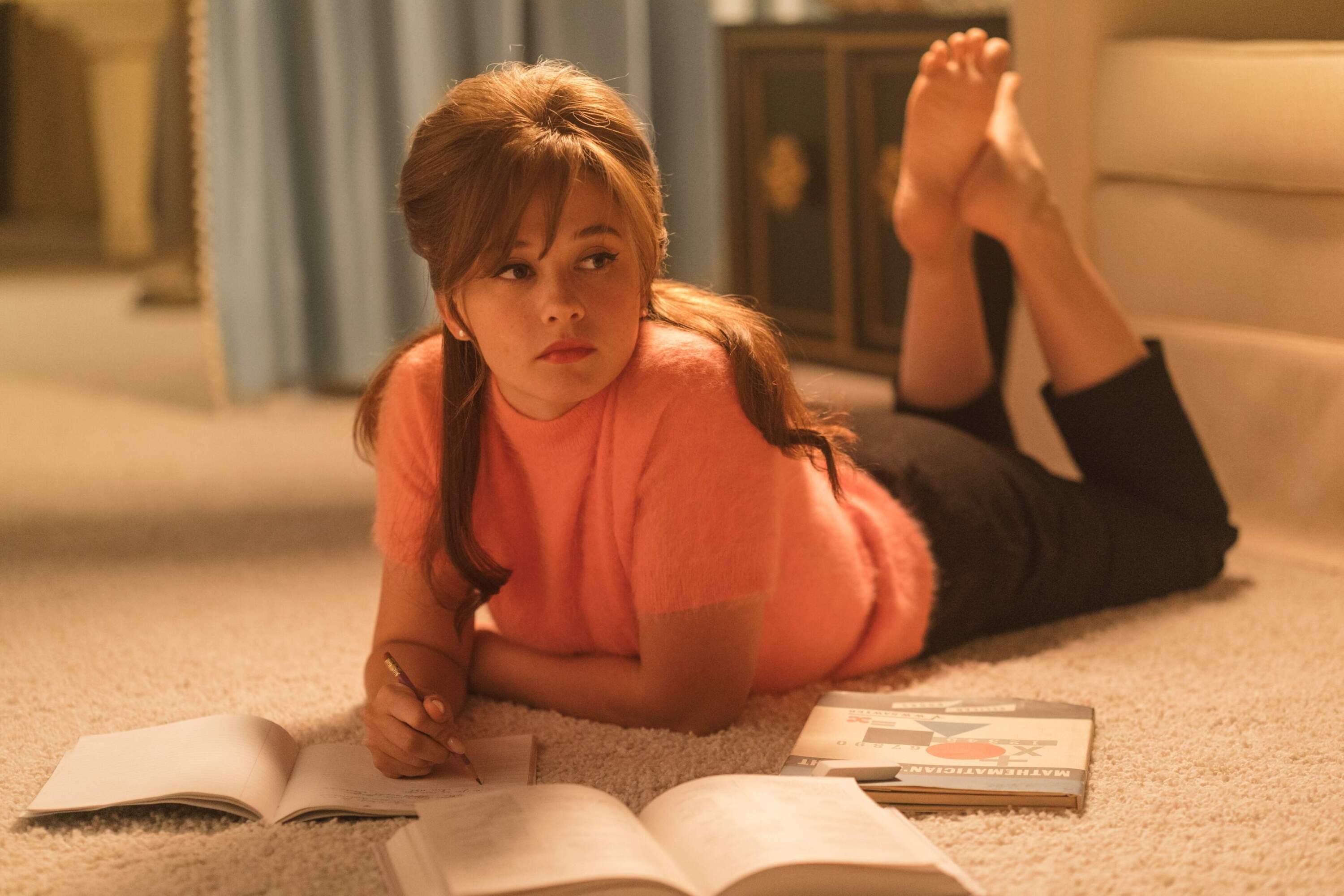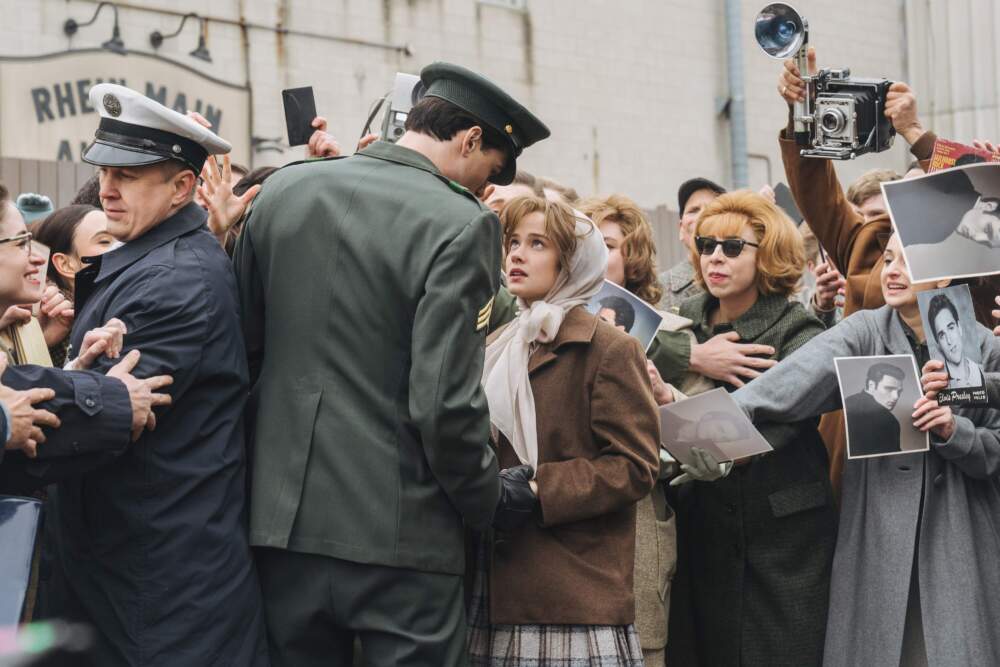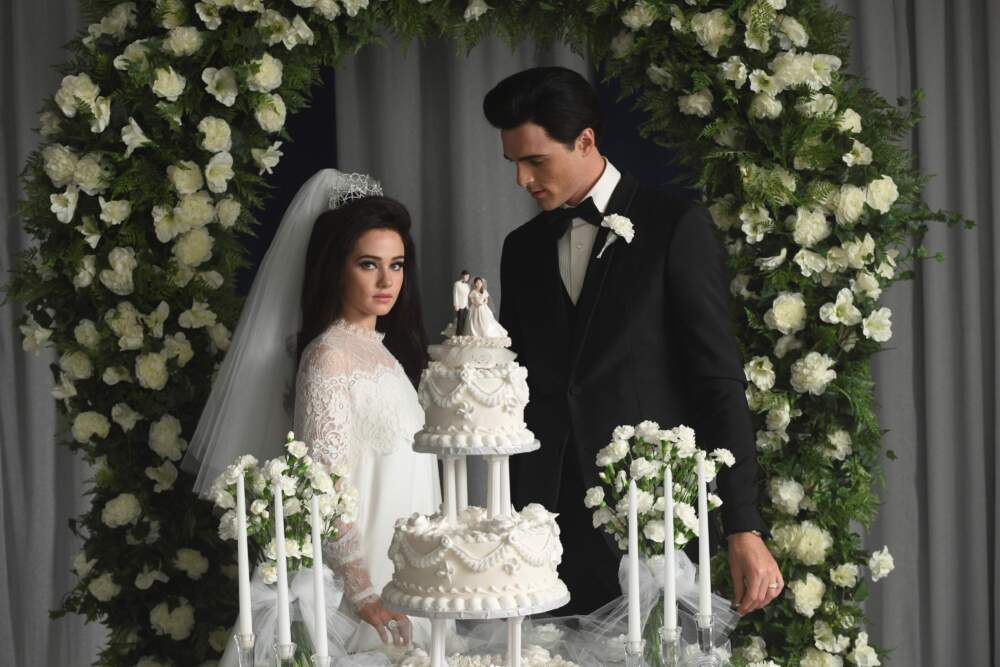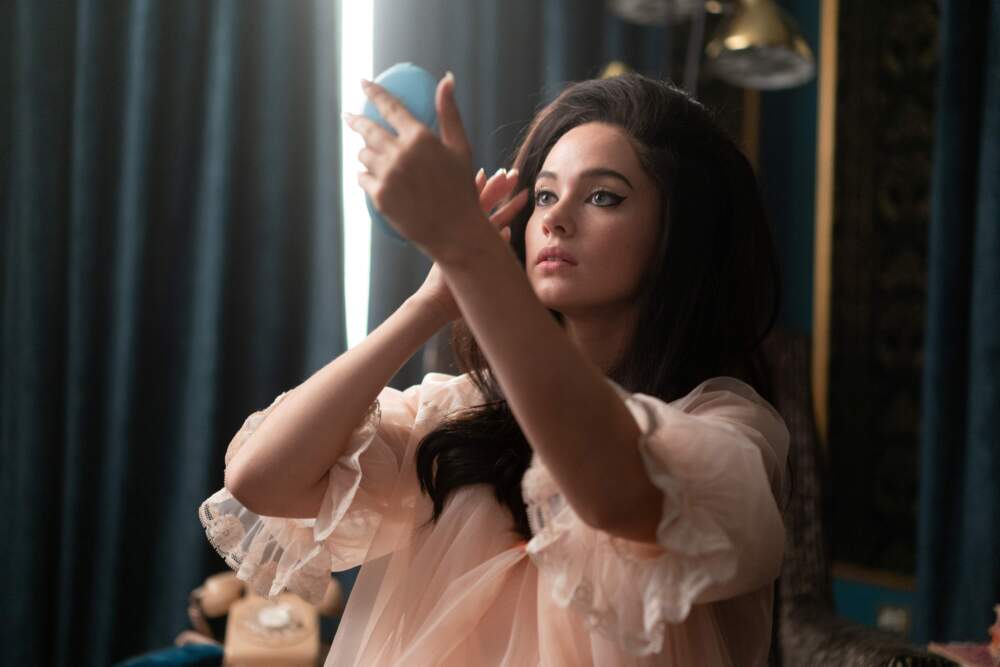Advertisement
Review
Sofia Coppola's 'Priscilla' paints Graceland as the world's gaudiest gilded cage

Sofia Coppola makes movies about princesses in castles. From the doomed, mysterious Lisbon sisters locked away from the world in her gobsmackingly great 1999 debut “The Virgin Suicides” to 2020’s undervalued “On the Rocks,” in which Rashida Jones plays lower Manhattan royalty in a Beastie Boys T-shirt, Coppola has always been preoccupied with the isolation of privilege, her characters held hostage by often enviable circumstances. Whether we’re watching Scarlett Johansson abandoned in a luxury high rise above Tokyo in “Lost in Translation” or “Somewhere” star Elle Fanning as a latchkey kid in the Chateau Marmont, Coppola’s heartbreakingly lonely characters find themselves adrift in opulence. This is why it’s difficult to imagine a filmmaker better suited to telling the story of Priscilla Presley. After all, what is Graceland but the world’s gaudiest gilded cage?
“Priscilla” is a classic Sofia Coppola story, full of dreamy yearning and disillusionment. Based on Presley’s 1985 memoir “Elvis and Me,” it’s the softer, sadder flipside to Baz Luhrmann’s surprise 2022 summer blockbuster, “Elvis.” That was a big, bombastic musical about what the myth of Elvis Presley meant to millions around the world. This is a smaller, more muted movie, stuck at home in an estate that became a prison for our protagonist. It’s a tale told largely through visual images and things that remain unsaid. The design of the film is exquisite, like “Marie Antoinette” gone to Memphis, with Coppola using costumes and settings to express what the characters cannot. She’s an incredibly sophisticated filmmaker, able to convey complicated power dynamics through her placement of actors in relation to their surroundings. You could probably watch “Priscilla” on mute and have no problem following the story. But then you’d be missing out on a terrific soundtrack — which, surprisingly, does not include any songs sung by Elvis Presley.

Though Priscilla Presley herself participated in the making of the movie, the Authentic Brands Group in charge of the Elvis estate’s music rights perhaps correctly noted that this isn’t the kind of portrait that sells records and moves merchandise. It actually worked out for the best, giving Coppola room to run with her trademark anachronistic soundtrack choices while also stressing that this is not his story. She kicks off the opening credits with The Ramones’ cover of “Baby, I Love You” and extreme closeups of Priscilla doing her hair and makeup while running her bare toes through the threads of thick, pink shag carpet. The mood, girlishly romantic and luxurious, is established instantly.
Twenty-five-year-old Cailee Spaeny won Best Actress at this year’s Venice Film Festival for her portrayal of the precocious Priscilla from ages 14 to 28. It’s a remarkable piece of work. I at first assumed they’d cast an actual child for the film’s uncomfortable early scenes set in 1959, when the ninth grader is discovered in a West German diner by one of Elvis’ countless hangers-on. Priscilla Beaulieu is an Army brat bored out of her mind in an unfamiliar country, while the “King” of rock ‘n’ roll is finishing his mandatory service on the same base where her dad is stationed. She’s basically procured for Elvis by his lackeys like a new plaything, and we get the sense this isn’t the first time they’ve done something like this. Coppola and her costume designers conspicuously dress the five-foot-one Spaeny as if she were a baby doll, and it’s no coincidence that Private Presley’s pet nickname for her is “Little One.”

As Elvis, the six-foot-five Jacob Elordi towers over Spaeny, and everybody else in the film. Coppola and cinematographer Philippe Le Sourd lean into the height disparity, shooting the actor as if he were even taller. It’s not just their way of visualizing how large his presence loomed in the lives of those around him, but also how impossible it was for Elvis to blend in anywhere, a gawky man-child perpetually ill at ease offstage. Elordi doesn’t have the raw magnetism that Austin Butler brought to “Elvis” last year. He plays him as more of a petulant, frightened little boy. There’s a theory that celebrities stop maturing at the age when they first get famous. In actuality, Elvis may have undershot that by a few years.
The initial teenage dream of being courted by the world’s most popular heartthrob is ecstatic, with Tommy James and the Shondells’ “Crimson and Clover” soaring on the soundtrack like a lovestruck symphony as Spaeny glides down her high school hallway. It’s painfully obvious to all of us in the audience just how sketchy this is — a grown man going out with a little girl — but Coppola gives Priscilla’s perspective its due. We can see how wonderful his attention makes her feel, and it aches to watch that flush of first love fade into something much darker and more dysfunctional. Spaeny’s performance is so affecting because she allows us to see what great pains Priscilla takes to present herself as older and more sophisticated than she really is, always pretending to be the most composed and put-together person in the room. There’s a moment that took my breath away, when she pauses to put on false eyelashes and make sure her makeup is perfect before heading to the hospital to give birth.
Advertisement

If a single scene sums up their relationship, it’s when Elvis buys a pet poodle to keep Priscilla company while he’s off making another terrible movie. He leaves the dog out back, walking in circles around a perfectly manicured picket fence pen that’s maybe four square feet in total. It’s a perfect analogue for his wife’s life in Graceland. Elvis picks out Priscilla’s clothes and changes her hairstyle, feeding her pills and denying her amorous advances. The closest we get to a sex scene is him taking Polaroids of her in lingerie, arranging her body in different positions. He needs her to be an object he can control, and can put aside when he gets bored. (To be fair, he is thoughtful enough to buy her matching guns for each different colored outfit.) The journey of the movie is Priscilla growing up while Elvis stays the same age, her coming to realize that she’s more than just another baby doll in his collection.
Coppola has such a strong sense for individual scenes, it’s frustrating when they don’t flow into each other. The last third of “Priscilla” gets especially choppy, hitting the biopic doldrums during Elvis’ post-comeback Las Vegas decline. Priscilla’s affair with her karate instructor is coyly hinted at but never dramatized, and her harrowing account of being raped by her husband in his hotel room is weirdly truncated. (Maybe for legal reasons, or maybe Coppola just didn’t feel like shooting a sexual assault.) The rhythm is really off during the last half-hour. But the movie rallies in its final moments with a perfect music cue that has a special meaning for those well-versed in Elvis lore. For everyone else it’s just a beautiful song, expressing what it would take years for Priscilla herself to be able to say.
“Priscilla” is now in theaters.
